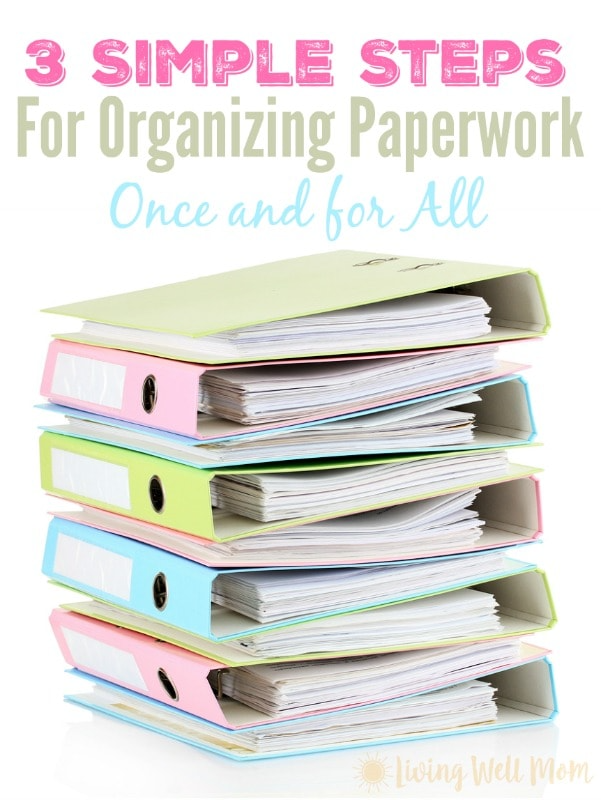Mailing Paperwork Made Simple: A Step-by-Step Guide

In an era where emails and digital documents dominate, there are still plenty of reasons why you might need to send physical documents through the mail. Whether it’s for legal reasons, international correspondence, or simply a preference for the tangible nature of paper, understanding the nuances of mailing paperwork correctly can save you time, prevent delays, and ensure your documents reach their destination in one piece. Here’s a detailed guide to help you navigate this process seamlessly.
Why Choose Mailing Over Digital?

When we talk about sending documents, the first question often is, “Why not just send it digitally?” Here are some compelling reasons:
- Legal Acceptance: Some documents require an original signature or notarization, which physical mail can provide.
- Privacy: Sensitive information might be better secured in a physical format than risking digital breaches.
- Official and Formal: Certain communications, like legal notices or employment contracts, often require the formality of paper.
- International Issues: Not all countries or international firms accept digital documents easily or reliably.
Gathering Your Documents

Before you even start thinking about envelopes and stamps, let’s get your documents in order:
- Check Requirements: Ensure you know exactly what documents need to be sent, how many copies, and in what format.
- Prepare the Documents: This might involve:
- Printing high-quality copies if originals are not required.
- Having documents notarized or signed, as needed.
- Removing or covering sensitive information if not necessary for the recipient.
📋 Note: Always verify that all documents are in the correct format, signed where necessary, and are clearly readable to avoid any complications.
Packaging Your Documents

Proper packaging is critical to ensure your documents are not damaged or lost in transit:
Envelope Selection

- Standard Size: A regular business envelope is usually sufficient for letters and smaller documents.
| Document Type | Envelope Size |
|---|---|
| Letters, small documents | #10 (standard business envelope) |
| Multiple sheets, contracts | 9 x 12 inches or larger |
| Legal-sized documents | 9.5 x 15.5 inches (Legal size) |

- Padding: For valuable or fragile documents, consider envelopes with bubble wrap lining.
Preparing the Package

Organization: Keep documents in order, using paper clips or binder clips, but avoid using staples which can tear documents.
Folding: If folding is necessary, do so neatly to avoid creases that could obscure information.
Include a Cover Letter: Explain what the recipient is receiving, why, and any instructions or requests for return documentation.
Sealing and Labeling

Seal Properly: Make sure the envelope is sealed securely. A little extra tape can ensure this.
Addressing:
- Write or print the address legibly. Include the name, address, and ZIP code.
- Optionally, include your return address for tracking and security.
Choosing the Right Mailing Service

The service you choose can affect delivery time, cost, and security:
USPS:
- Affordable, but can be slower.
- Options like Priority Mail or Certified Mail offer more tracking and security.
FedEx or UPS:
- Faster options, often with more secure handling.
- More expensive but provide peace of mind for valuable documents.
Courier Services: Best for time-sensitive or international deliveries.
Tracking and Insurance

Tracking: Many services provide tracking options, ensuring you can follow your package’s journey.
Insurance: Consider insurance for high-value or irreplaceable documents.
🔍 Note: Ensure you keep a record of the tracking number and the proof of insurance, if applicable.
International Mail Considerations

When mailing internationally:
Customs Forms: Fill out customs forms accurately. Misinformation can lead to delays or refusal of entry.
Check Restrictions: Some countries have restrictions on what can be sent.
Service Selection: Use services like DHL or international couriers for faster delivery times.
Managing Postage Costs

Weight: Remember that postage is often based on weight, so consider the weight of your package.
Size: Dimensions play a role too. Bulkier packages cost more.
Postage Options: Buy stamps, use a postage meter, or visit the post office to weigh and stamp your package.
Delivery Confirmations

Signature Confirmation: For important documents, consider this option to ensure someone signs for the package.
Return Receipt: If you need proof of delivery for legal or company records.
Ensuring Document Safety

Double Check: Before mailing, review all documents to ensure nothing is missing or mislabeled.
Track and Follow Up: Use tracking services to monitor your mail’s progress. If there’s a delay, follow up.
💡 Note: In case of lost mail, having tracking and insurance can be crucial for replacements or compensation.
By following these steps, you can master the art of mailing paperwork, making the process as simple, secure, and efficient as possible. Whether you’re sending personal documents or handling official correspondence, these guidelines will help ensure your documents arrive safely and on time.
What’s the best way to send documents internationally?

+
For international mailing, consider using a courier service like FedEx or DHL. They provide faster delivery, tracking, and customs handling, reducing the risk of delays or document loss.
Is it necessary to notarize documents before mailing them?

+
Not all documents require notarization. However, for legal, financial, or official documents, notarization might be required. Always verify with the recipient or check legal guidelines before mailing.
Can I track my document after mailing it?

+
Yes, most postal services offer tracking options. Services like Priority Mail from USPS, as well as courier services like UPS and FedEx, provide detailed tracking information.



